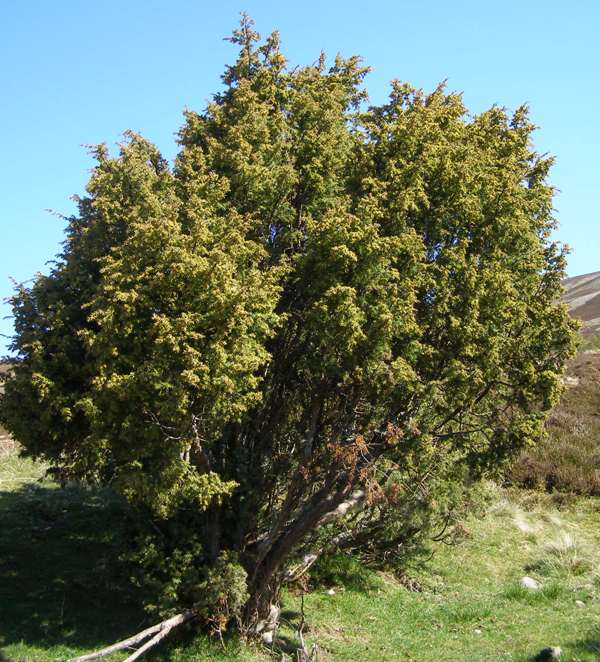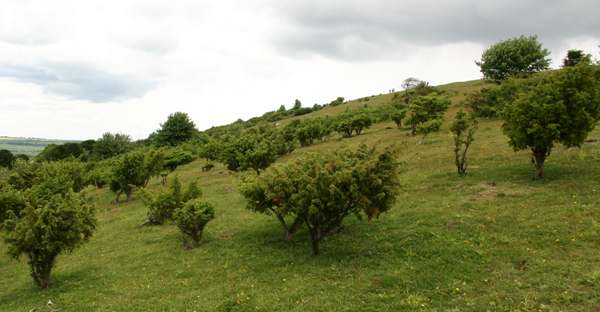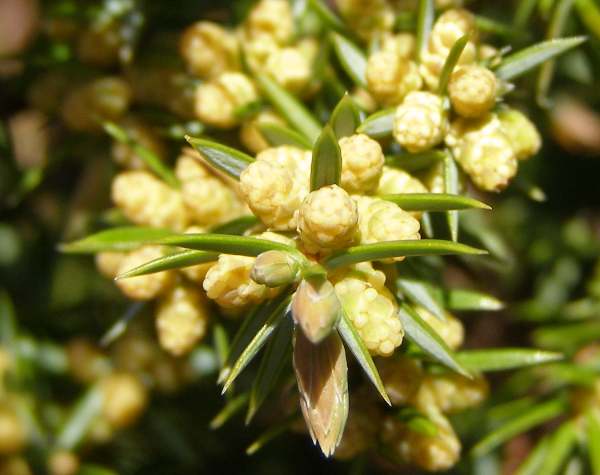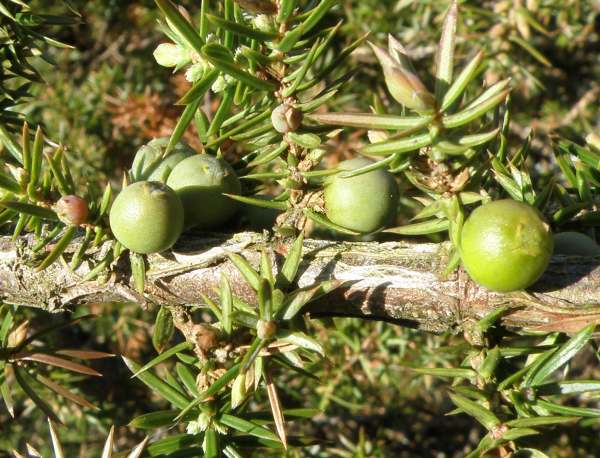Juniperus communis - Common Juniper
Phylum: Magnoliophyta - Class: Pinopsida - Order: Pinales - Family: Cupressaceae

One of only three conifers that are native to Britain, Common Juniper Juniperus communis is a small evergreen tree (often no more than a shrub) that is very difficult to ideentify from its form; this is because the growing habit of a Juniper is greatly influenced by its location. In exposed coastal habitats they hug the ground and spread horizontally, never exceeding 0.5 metre in height. In sheltered locations the trees can attain a height on 10 metres and occasionally more. Junipers are slow growing trees and can live for up to 200 years.

The Junipers shown above are on sloping chalk downland in southern England.

The yellow male cones (male flowers), as seen above, appear in springtime and grow on separate plants from the female cones. Trees with this chtacteristic are termed 'dioecious'.

The spherical female flowers (strictly they are cones) are green initially, but as they mature slowly over about a period of 18 months they turn purplish blue and look very much like ripe berries. Pollination is by the wind blowing pollen from male trees onto the cones of female trees. Each female cone has (usually) three scales each covering a seed.
Uses
Juniper is of limited value as a structural timber because of its small size and often contorted trunks and branches, but the wood when cut has a pleasant and long-lastiing odour and so serves as a pot pouri alternative. The dense and prickly nature of Juniper bushes and trees makes them attractive nesting places for small birds, while the ripe berries are eaten by larger birds including Song Thrushes, Mistle Thrushes, and Ring Ouzels. This is the food plant of several kinds of moths including the Juniper Pug Moth and the Juniper Carpet Moth.
Most famously, perhaps, Juniper berries are used as a flavouring in the making of gin. A derogatory name for this spirit is 'mothers' ruin', and it's not because women who drink too much gin behave badly or become alcoholic (although it could hapen) but rather because oil from the berries, which was used to treat respiratory and digestive ailments, was taken by (or given to!) women in the belief that it could terminate unwanted pregnancies by causing miscarriage. Eating Juniper berries has been known to cause cattle to abort, so there may be some substance to the 'mothers' ruin' story.